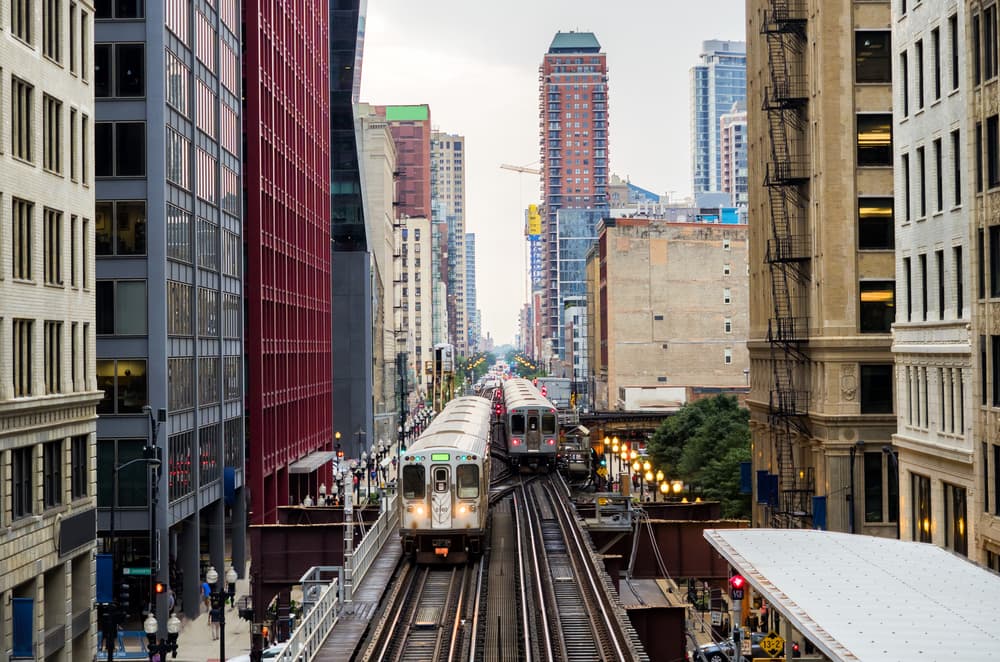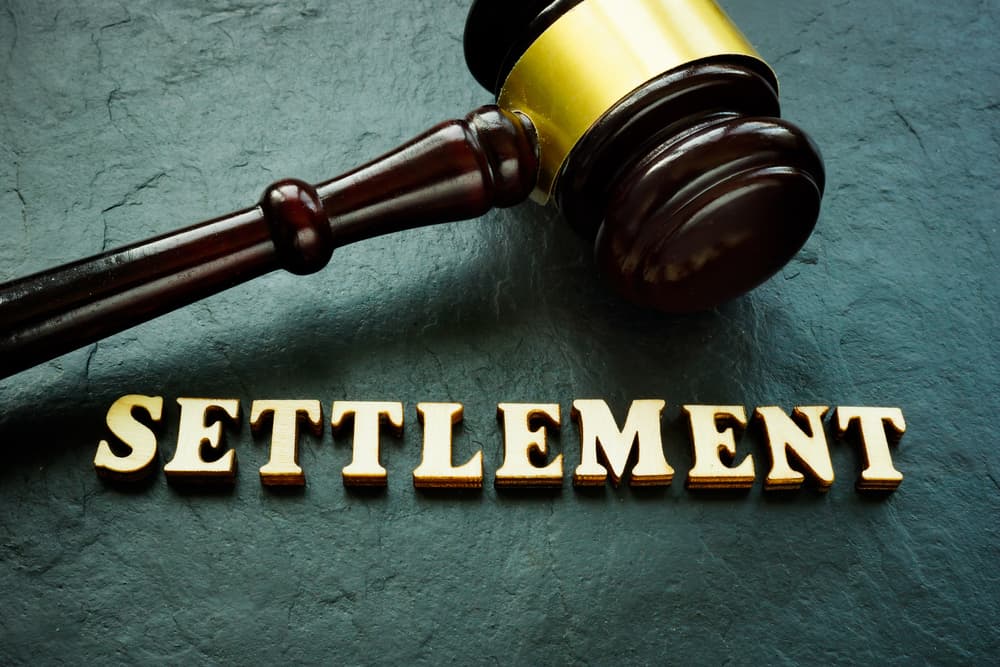Abels & Annes, P.C. Signs CTA L Train Accident Case
On the morning of November 16, a Chicago commuter train crash left 38 people injured. The crash involved a Chicago Transit Authority (CTA) Yellow Line train colliding with snow-fighting equipment on the tracks.
The train was on its way to the Howard terminal in Rogers Park. The train engineer and the driver of the snow-removal equipment were among those seriously injured in the crash.
The National Transportation Safety Board (NTSB) is investigating this unfortunate event.
Preliminary findings suggest that the NTSB is focusing on a potential flaw in the train's braking system as a contributing factor to the incident.
We are Chicago train accident attorneys committed to helping injured people. Our team understands the intricacies of incidents like the CTA train crash and the potential legal avenues available to those it injured. Abels & Annes, in fact, already represents one of the accident's victims.
If this crash affected you or a loved one, our team at Abels & Annes P.C. is here to offer support and guidance to yoiu, too, on your path to recovery.
Here is what you need to know.
CTA Yellow Line Train Crash – What Happened?
According to the Associated Press, the Chicago Fire Department reported that the Chicago Transit Authority train crashed into snow-removal equipment just before 10:35 a.m. on the city’s North Side near the Howard CTA station. The accident injured thirty-eight people, including four children. Twenty-three went to area hospitals. The crash left three people in critical condition.
The Chicago Sun-Times reported that firefighters said the southbound train and snowplow were on the same tracks when the train hit the plow about 300 yards from the station in the 7500 block of North Paulina Street. The news agency said officials did not indicate why the plow was on the tracks.
The NTSB began investigating the crash immediately after the incident. CBS News reported that the CTA was aware that the snow removal equipment was on the tracks, and the train engineer was slowing the train to stop.
The NTSB identified a design problem with the braking system on the Yellow Line train. An NTSB spokesperson said the braking distance the train had was 1,780 feet, about 1,000 feet shorter than newer systems, according to CBS.
The flaw could affect other similar trains, posing additional risks to commuters.
Who is Responsible for the Chicago Commuter Train Crash?
In a commuter train crash involving a collision with snowplow equipment, potential liability could depend on various factors. Generally, you might hold the train operator, snowplow equipment owners, maintenance companies, or even government agencies overseeing transportation infrastructure liable.
If investigators identified an issue with the braking system of the train involved in the commuter line crash, it could significantly affect liability. The responsibility for maintaining and ensuring the proper functioning of the train's braking system often falls on the entity responsible for the train's maintenance, such as the train operator or the maintenance company.
Potentially liable parties may include the entity responsible for inspecting and maintaining the train, the manufacturer of the braking system if a defect caused the crash, or even the company responsible for overseeing safety regulations.
In cases like this, negligence or failure to address known issues with the braking system could increase the liability of the responsible parties.
Failure to rectify a known braking system problem may constitute negligence, potentially increasing the legal responsibility of the party responsible for the maintenance and operation of the train.
Multiple accidents related to the same braking issue could strengthen the argument that the responsible entity failed to take appropriate measures to ensure passenger safety. This could lead to heightened liability, including potential legal consequences such as lawsuits and regulatory penalties.
Do I Have a Personal Injury Claim for Injuries from the Commuter Train Crash?

Someone injured in a train crash may have grounds for a personal injury claim. If the crash resulted from negligence, such as a braking system issue that wasn't addressed, the injured party might seek compensation for their injuries and related damages.
To establish a personal injury claim, the injured person typically needs to demonstrate:
- Duty of Care: The party responsible for the train's operation and maintenance owed a duty of care to passengers.
- Breach of Duty: There was a breach of that duty, such as negligence in maintaining the train or addressing known issues like the braking system problem.
- Causation: The breach of duty directly caused the injuries sustained in the train crash.
- Damages: The injured person suffered actual damages, such as medical expenses, pain and suffering, lost wages, etc.
Individuals considering a personal injury claim must consult an attorney with experience in personal injury and transportation law. They can provide personalized advice based on the specific details of the case and help navigate the legal process.
How Can a Chicago Personal Injury Lawyer Help Me?
If a train crash injures you, our Chicago lawyers can provide invaluable assistance throughout the process.
Here's how we can help:
- Consultation: A lawyer can offer a free initial consultation to assess the details of your case. They will listen to your account of the incident, evaluate the circumstances, and help you understand the potential merits of your case.
- Investigation: Lawyers have the experience to conduct a thorough investigation into your unique circumstances in the commuter train crash. This may involve gathering evidence, reviewing accident reports, and consulting experts to understand the cause of the crash.
- Identifying Liability: You must determine liability for the crash. A lawyer will identify the responsible parties, whether it's the train operator, maintenance company, equipment manufacturer, or others.
- Navigating Legal Processes: Filing a personal injury claim or lawsuit involves complex legal procedures. A lawyer will guide you through the paperwork, court filings, and other necessary processes, ensuring all deadlines are met.
- Calculating Damages: Lawyers can assess the damages you've incurred, including medical expenses, lost wages, pain and suffering, and other related costs. They'll work to maximize the compensation you may be entitled to.
- Negotiating with Insurance Companies: Lawyers can handle negotiations with insurance companies on your behalf. They'll work to secure a fair settlement that adequately covers your damages without accepting a lowball offer.
- Litigation Representation: If a fair settlement cannot be reached, a lawyer can represent you in court. They'll present your case, cross-examine witnesses, and advocate for your rights during trial proceedings.
- Expert Witnesses: Lawyers can bring in expert witnesses, such as accident reconstruction specialists or medical professionals, to strengthen your case by providing credible testimony.
- Statute of Limitations Compliance: A lawyer will file your lawsuit within the applicable statute of limitations, preventing a court from dismissing your case due to timing issues. The statute of limitations for a personal injury or wrongful death claim is typically two years in Illinois.
Having a lawyer after a train crash provides peace of mind, knowing that a legal professional is handling the complexities of your case.
Call Abels & Annes, P.C. for Your Chicago Commuter Train Crash Claim
If the recent Chicago commuter train crash injured you, don't navigate the legal complexities alone. Call Abels & Annes, P.C. today to secure the experienced representation you need.
Our team is dedicated to advocating for victims of transportation accidents and ensuring they receive the compensation they deserve. With a track record of successful personal injury claims, we're ready to fight for your rights.
Take the first step toward justice and recovery. Call Abels & Annes, P.C. now for your free consultation. Our compassionate and skilled legal professionals can guide you through the process and help you rebuild after the trauma of the train crash.
We can answer your questions 24 hours a day, 7 days a week. If you contact our office after regular business hours about a new case, your email or phone call will be forwarded directly to a Chicago personal injury attorney.
Call us at (312) 924-7575 or fill out our online contact form. We are your advocates for justice!



